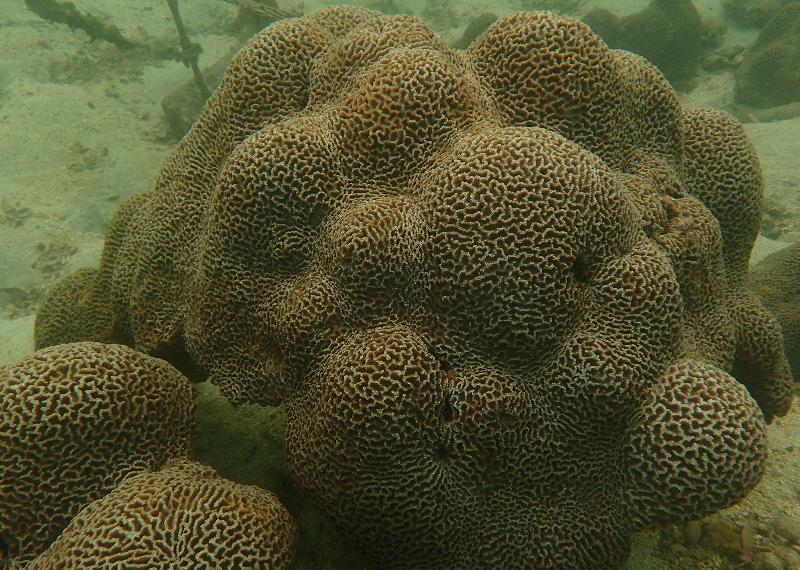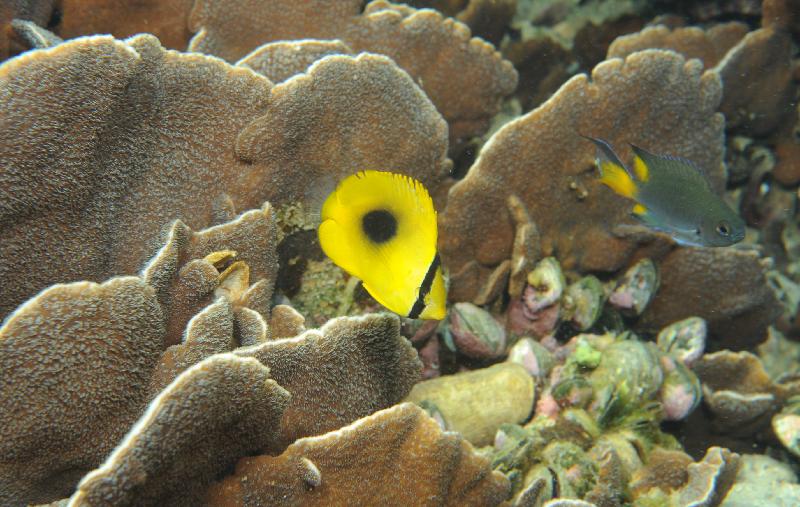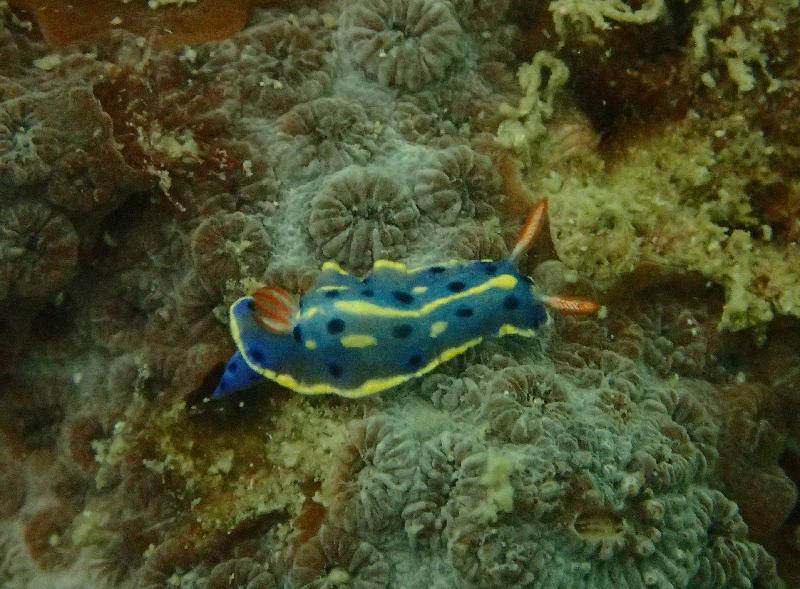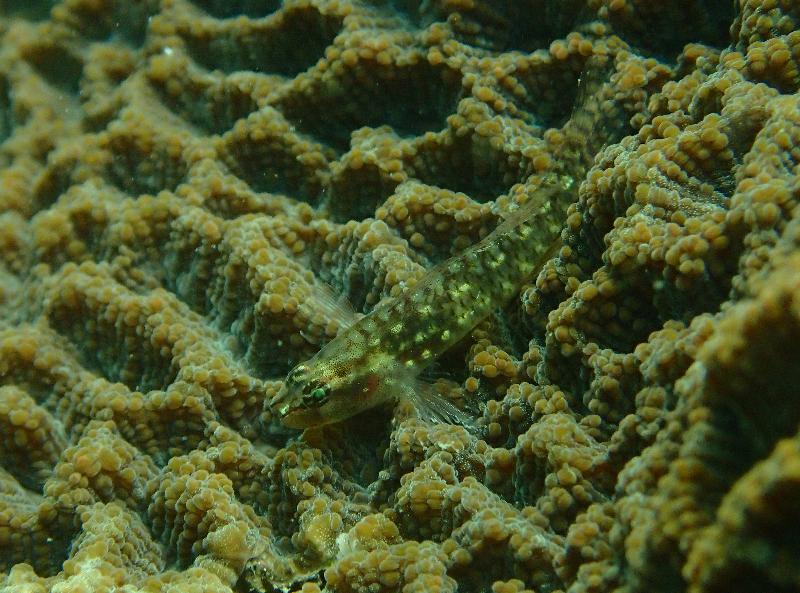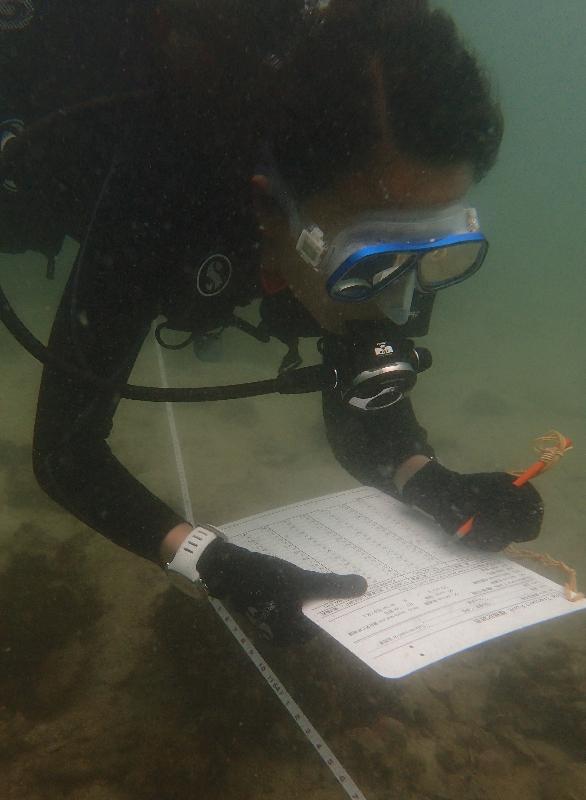Hong Kong Reef Check marks its 20th anniversary (with photos)
*************************************************************
Hong Kong Reef Check is part of a global programme to promote the sustainable management of coral reefs. The first Reef Check was held by the Hong Kong Reef Check Foundation in 1997. The AFCD has collaborated with the Foundation in conducting the survey since 2000.
The Reef Check has been well received by divers. The number of participating volunteer divers and teams has continued to set new records over the years. This year, 68 dive teams comprising more than 750 volunteer divers from different sectors of the community took part in the Reef Check.
Hong Kong Reef Check 2016, a four-month exercise that started in June, covered marine areas in the eastern part of Hong Kong extending from Tung Ping Chau in the north to the Ninepin Group in the south, including a number of sites of ecological importance. Among the 33 survey sites, nine were within the Hoi Ha Wan, Yan Chau Tong and Tung Ping Chau marine parks.
The results this year showed that local corals are generally in a healthy and stable condition and exhibit a rich diversity of fauna species. A variation in coral coverage, ranging from 9.3 per cent to 82.8 per cent, was recorded among the survey sites. Nineteen sites recorded high coral coverage (above 50 per cent). Among all sites, Sharp Island North recorded the highest coral coverage of 82.8 per cent. A notable decrease in coral coverage was observed at Moon Island, Hoi Ha Wan, while minor coral bleaching was noted at a few sites but the impact was localised.
An AFCD spokesman said, "In view of the situation of the coral community at Moon Island, the department has commissioned coral experts of the University of Hong Kong to study the cause of the incident and to conduct a research study on restoration of corals."
Reef Check 2016 assessed the condition of corals at eight sites using the Coral Watch tool. By measuring the colour intensity of the coral using a specially designed Coral Health Monitoring Chart, the health condition of corals can then be determined. The average health index of the sites was 4.11 (ranging from 3.65 to 4.67), which was similar to last year's figure (4.23). The average health index is well above the general average value (3), indicating the corals were in a healthy and stable condition.
Hong Kong Reef Check's survey method and data collection follow international standards. Reef Check divers recorded coral coverage and health status as well as indicator species (including 20 fishes and invertebrates). The data helps assess the coral condition and fauna diversity of a coral reef ecosystem over time. Most of the survey sites were found to have a high species diversity. All of the 20 assigned indicator species were recorded in the survey sites, with wrasses, groupers, butterfly fish, sea urchins, sea cucumbers and cowries commonly found.
Ends/Saturday, December 3, 2016
Issued at HKT 18:11
Issued at HKT 18:11
NNNN





